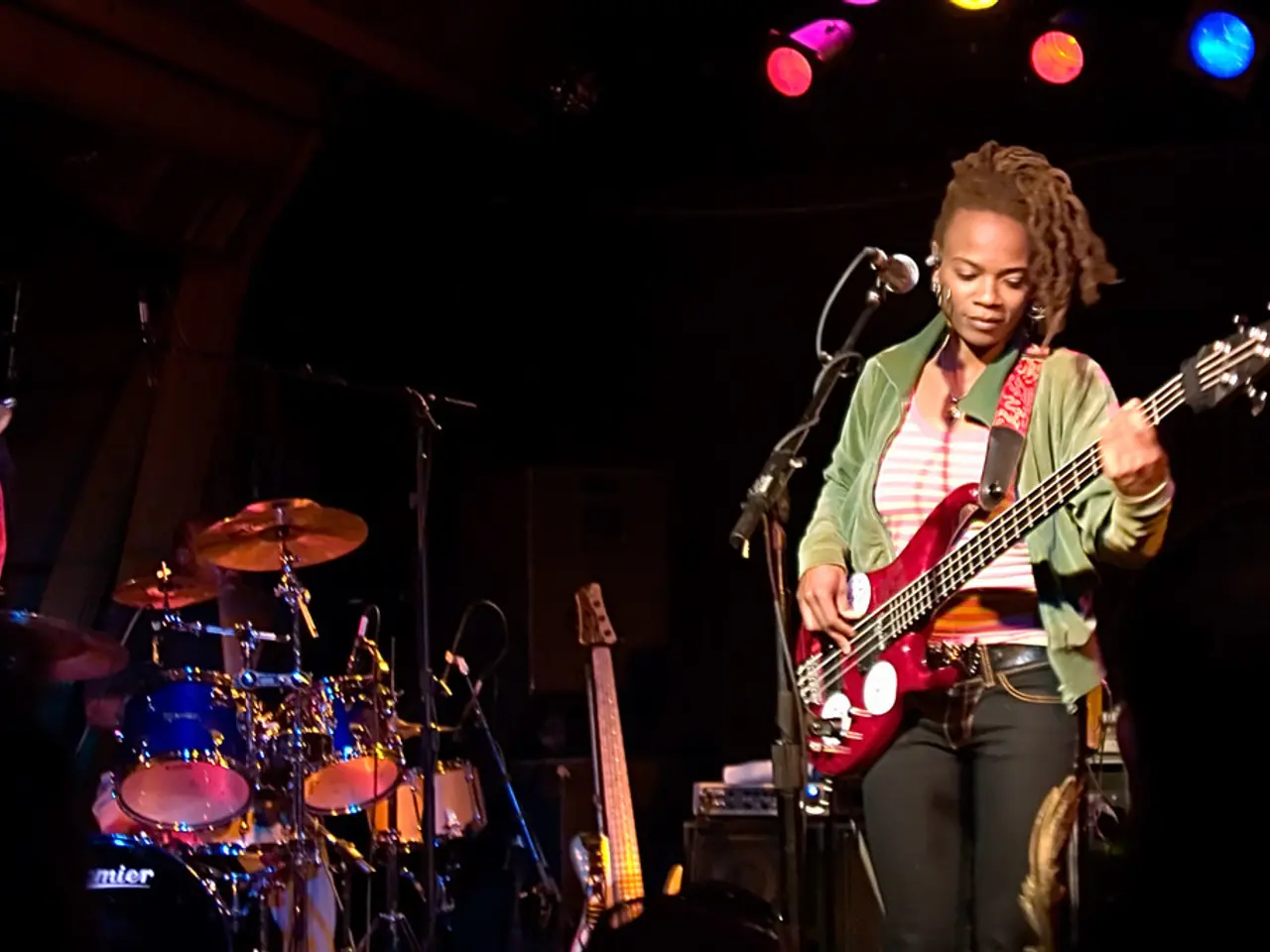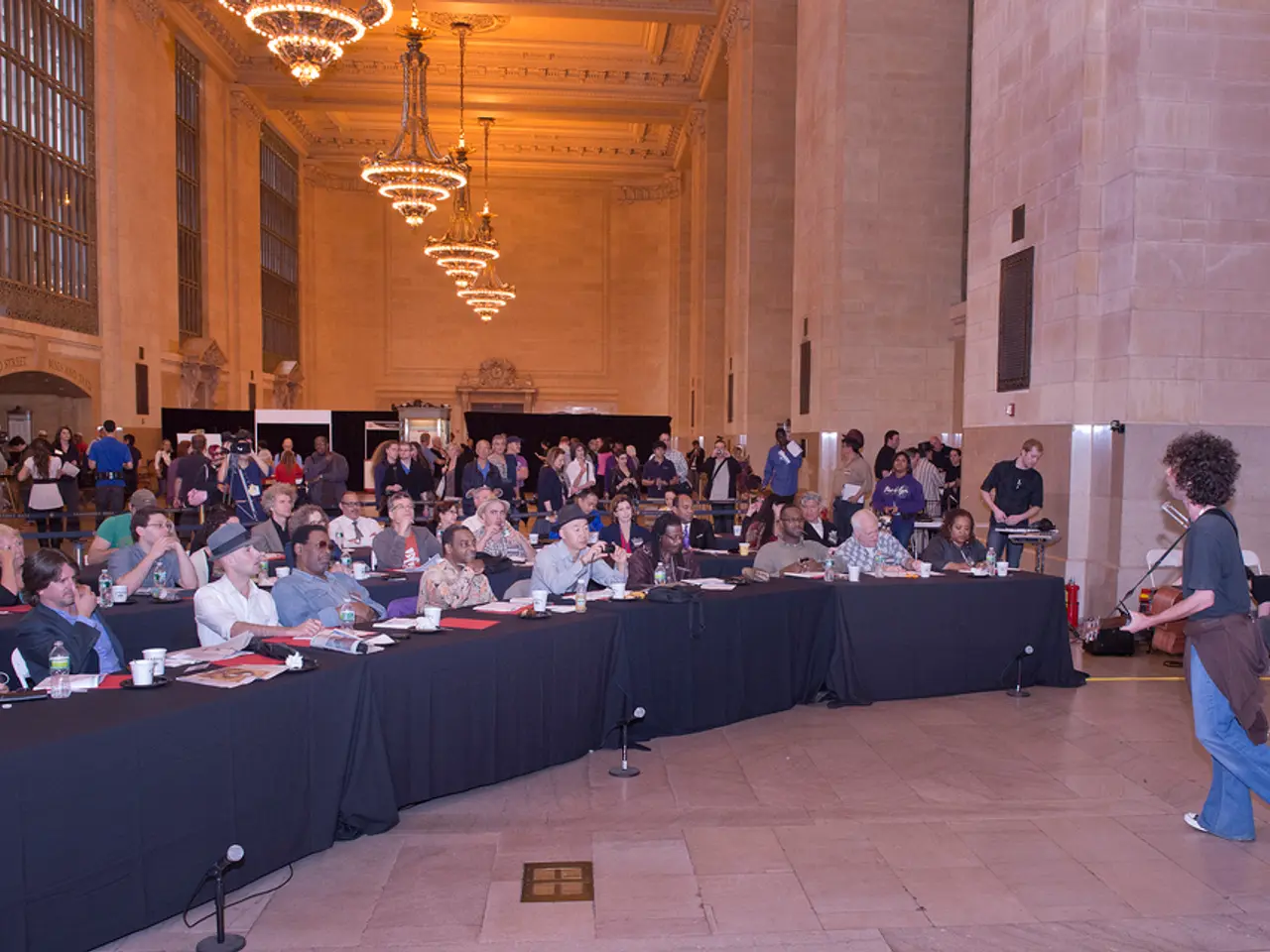Ongoing drama surrounds the cast of 'Maybe Happy Ending'
A stir has been caused on Broadway, with the casting of Andrew Barth Feldman as Oliver in the musical "Maybe Happy Ending" becoming a subject of intense debate. The production, which has consistently featured diverse performers, is now being viewed as overly politicized due to this casting decision.
Originally written by Will Aronson and Hue Park and first staged in Seoul, "Maybe Happy Ending" tells the story of two South Korean helper robots. The creative team's intent for the storytelling was to remain open to actors of all backgrounds, but the decision to cast a non-Asian actor has sparked significant backlash.
The controversy risks derailing a well-reviewed, well-intentioned original musical on Broadway. This situation could potentially jeopardize a production widely regarded as contributing to inclusion, not undermining it.
Helen J Shen, who stars as Claire in the show and is Andrew Barth Feldman's partner, has expressed complex feelings about the casting decision. She acknowledged the hurt felt by the Asian American and Pacific Islander (A/PI) community, recognizing the vacuum of hopeful A/PI stories the show helped fill.
Critics and community members view this casting choice as a form of whitewashing and erasure rather than genuine inclusion or representation. Telly Leung, a prominent actor, criticized the move for betraying the A/PI community's trust and for setting a dangerous precedent that could discourage authentic representation in future productions.
The controversy has led to wider discussions about the balance between authorial intent, casting precedent, and meaningful AANHPI representation on Broadway and beyond. It continues to fuel debate on how to best honor and advance authentic representation in theater.
Notable figures like BD Wong, a Tony Award winner, have added their voices to the criticism, stating the decision as a hard slap to the Asian actor community and audience. The Asian American Performers Action Coalition (AAPAC) has also released a statement expressing disappointment over the casting of Andrew Barth Feldman as Oliver in "Maybe Happy Ending".
As Broadway grapples with declining audiences, post-pandemic uncertainty, and shrinking arts funding, the controversy surrounding the casting decision in "Maybe Happy Ending" reflects a broader pattern in which Asian American performers are passed over, even in stories that originate from their communities.
Some industry professionals have been cautious about speaking publicly on the controversy, fearing it could appear dismissive of legitimate concerns. Christopher James Tamayo, a standby in the show, has expressed concern that the online discourse might be inadvertently undermining the very thing that they want to preserve for opportunities for all.
Helen J. Shen, who continues in the role of Claire and is Feldman's real-life partner, has addressed the controversy in a post, acknowledging the hurt felt by the community and hoping to continue the conversation about the casting decision and its impact. The future of "Maybe Happy Ending" remains uncertain, as the debate about representation and inclusion in theater continues to unfold.
[1] Source: The New York Times [2] Source: Variety
- The controversy over the casting of Andrew Barth Feldman as Oliver in "Maybe Happy Ending" has raised concerns about whitewashing and erasure in entertainment, potentially jeopardizing a production that was widely viewed as promoting inclusivity.
- Critics and community members view the casting of a non-Asian actor in "Maybe Happy Ending" as a form of whitewashing and erasure, arguing that it sets a dangerous precedent for future productions and undermines opportunities for authentic Asian American representation in theater and entertainment.






